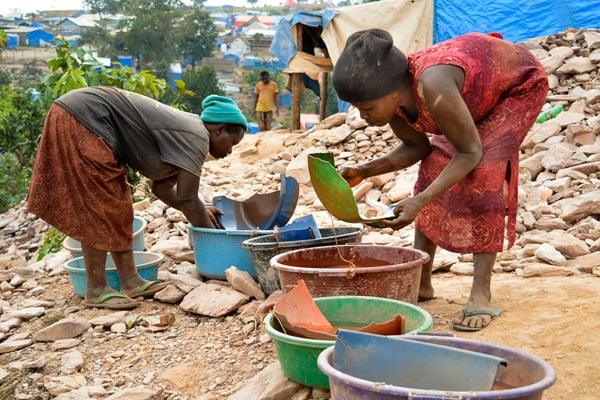Prime
New Bill on kavera ban in the offing

Mr Michael Ssebulime a supermarket attendant packing merchandise in a kaveera. photo by Malik Fahad Jjingo
What you need to know:
The current law (National Environment Act) only bans the use of polythene below 30 microns
The executive director of the National Environment Management Authority (Nema), Dr Barirega Akankwasa, has said a Bill that seeks to completely ban the use of polythene bags (buvera) in the country is in the offing.
The current law (National Environment Act) only bans the use of polythene below 30 microns.
“The current law stops at 30 microns and below, but the President, Cabinet and ministry directed that we completely phase out single-use plastics. So we are taking a Bill to Parliament to revise the law and ban polythene completely,” Dr Akankwasa told Daily Monitor in an interview last week.
He added that Rwanda and Kenya have completely banned polythene and Uganda is the only country in the East African Community (EAC) still using it.
“If you go to Kenya, you will not find any plastic water bottle; all hotels are using glass water bottles,” he said, adding that the Uganda National Bureau of Standards (UNBS) measures the polythene and confiscates those that are below 30 microns.
But he said Nema in collaboration with UNBS will soon start operations against banned polythene.
Dr Akankwasa said polythene is harmful to the ecological system.
“We are all aware that when polythene is consumed by animals, especially cows and goats, they die. So why insist on using a commodity which we all know is dangerous?” he wondered.
The Kamuli District Environment Officer, Mr Sam Bakaki, called for political will to enforce anti-polythene rules.
“If we are going to do enforcement, we (politicians and technocrats) should all be speaking the same language; however, politicians are often funded by businessmen who mostly own these factories of polythene bags, hence a challenge in enforcing it,” Mr Bakaki added.
Dr Akankwasa said Nema has partnered with Uganda Investment Authority (UIA) to attract investors who can manufacture alternatives for banned polythene, including paper bags and cloth bags.
“Let us stop using plastics because the dangers are so many; to biodegrade, it will take thousands of years; but we can use alternative bags made of cloth or paper and still live a good life,” he said.





